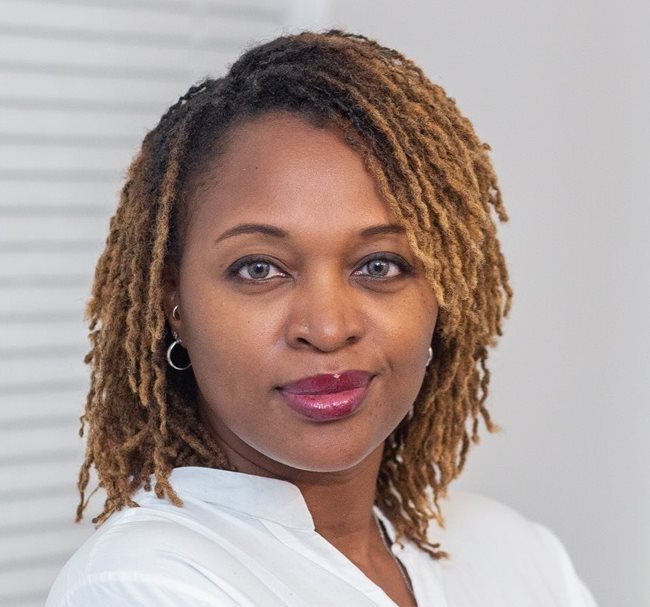
Top stories



ESG & SustainabilityRedisa calls on govt to fix South Africa’s “broken” waste management system
1 hour




We find out from Mimi Kalinda about her journey into storytelling
Africa Communication Media Group (ACG) started in 2015 in Johannesburg, South Africa. It was born out of the need to create a culturally attuned Pan-Africa communications company owned by Africans. After having worked in leadership roles for public relations, and strategic reputation management companies, we realised (Addis Alemayehou and I) that there was a huge gap left by a lot of companies working in our space. Many were applying a cut and paste approach and taking a blanket look at the continent.
Having travelled the continent, we understood that doing communications in Nigeria, for example, was hugely different from how we would approach South Africa, Mali, or Benin.We wanted that to be reflected in the type of work and communications strategies that we developed for our clients.
Our vision was to create a leading hub for Africa-centered communications both for African clients and global clients. We have become the go-to PR and strategic communications agency for anyone looking to do business in Africa and share their narrative stories, and for that, we are grateful to our amazing clients.
My early career was in front of the camera, so my very first job in the media was with Channel O. I then moved on to MTV, where I was a VJ in London. The first half of my career was as a TV host. Then I transitioned into content production and I became fascinated with everything that happened behind the scenes. After graduating with a degree in Media Studies at New York University, I went on to work for HBO, Showtime, Life Time Television, Oxygen – I did everything from ad sales, to business development, and all work behind the camera and what an incredible experience this was.
I then chose to become a documentary film producer because I was fascinated by how we can use films to tell impactful stories that change narratives. I worked at 40 Acres and a Mule (Spike Lee’s production company) and eventually moved to the DRC, where I worked on a project called “Rien Que La Vérité” which addressed behavioural change challenges by highlighting stigma on issues such as HIV and Aids and violence against women in times of war.
That’s when I realised that you could use stories and media to create perceptions that lead to concrete behaviour change and actionSo, eventually I came back to South Africa and started on my journey to blend everything I learned from content production to behavioural change communications into strategic communications and PR – I eventually started my own company ACG in 2015.
My career highlights include having worked as the Africa Lead for FleishmanHillard (FH), where I was in charge of the global public relations firm's engagement with its affiliates in Africa. I was part of the team that won a Prism Award for the Barclays Africa "Prosper" campaign and the African Union's Ebola campaign, which raised $51m.
I also worked for Weber Shandwick, where I oversaw social impact accounts such as the Innovation Prize for Africa, the Bill & Melinda Gates Foundation, and the Michael & Susan Dell Foundation.
I have also worked with director Spike Lee as a production assistant on the film Inside Man from 2003 to 2006. During this time, I also produced and directed my first documentary, Miseducating the World about the impact of the negative portrayal of Africa in the US news media on Africans living in the diaspora.
It was an incredible experience, especially because the feed of MTV that I was presenting broadcast right back into Africa, which meant that young people back home could watch me and hopefully be inspired. Travelling all over Europe as a VJ and getting to know and understand the history of music, how music is made, and how a band’s music personality is created through marketing etc, that was fascinating and very educational for me.
Do not be afraid to go after what you want! I think a lot of the opportunities that I have had were based on my confidence in my ability to deliver. You have to be bold and believe in yourself. Know that what you have to give has value.
Do not be afraid of change. Nobody’s career is linear, there will be so many twists and turns. Be flexible enough to go with the flow and then be excellent at what you do because being excellent will get you into rooms you never even dreamed of. Make sure you work at your craft and when people look at your body of work, make sure it fully represents your brand.
Imagine you are an entrepreneur and you are walking into a room full of potential funders for your idea, products or services. You pitch your idea beautifully and it’s a compelling proposition. You walk out of the room and somebody else walks in with the exact same idea and business plan. What is going to make a difference between the two of you?
I believe the difference will be your story - what about you makes you the perfect person to execute the idea?
In business, storytelling is pivotal because it differentiates you from everyone else.
 What approach should companies take when sharing their narrative?
What approach should companies take when sharing their narrative? Be deliberate. Storytelling is an investment - you spend time and resources. Telling a good story is not an easy exercise because you have to be clear about your intention, what you want your return on investment to be, who your target audience is and how you are going to reach them with your carefully crafted messages.
Be consistent. Storytelling is not a once-off thing. Set clear and winnable metrics- How will you know when you have reached your objectives? Anything worth doing should be measured.